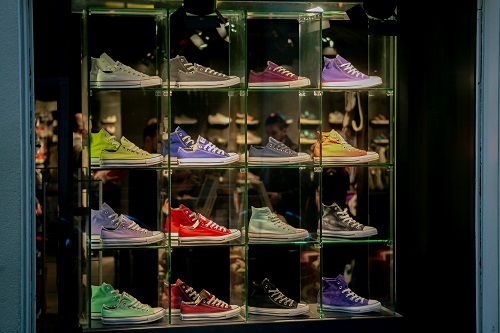Shoe Retail Business

Type: Retail/ Trading.
Key product/s for sale: New and second-hand shoes for men and women.
Technology considerations: A point-of-sale (POS) system for sales tracking and inventory management software for stock control.
Market for the product/s: Urban areas with a large and youthful population, including Githurai, Kawangware, Muthurwa, Gikomba Market, and nearby universities.
Key inputs into the business: Shoes (new or second-hand), labor (sales staff), capital for startup costs, and operational expenses.
Product preparation process: Procuring shoes from wholesalers or second-hand markets, organizing and displaying shoes in-store or at market stalls.
Quality considerations: Ensuring the shoes are of good quality and appeal to the target market’s preferences. For example, young people typically like good-quality sneakers.
Cost of investment:
Starting a new shoe business requires a minimum investment of Ksh 200,000 for new shoes and Ksh 50,000 for second-hand shoes
Rent – Ksh 15,000, Business licenses – Ksh 5,000
Required operational infrastructure: Physical storefront or market stall, display racks/shelves, storage space, POS system, and inventory management software.
Most suitable or viable location of the business: Busy urban areas with high foot traffic and visibility, targeting areas with a large and youthful population.
Potential sources of investment capital: Personal savings, loans from financial institutions, partnerships, or investors.
Requirements for effective management: Efficient inventory management, sales and customer service training for staff, marketing strategies, and financial management.
Role of mobile phone and ICT in the business: Utilizing mobile phones for communication with customers and suppliers, utilizing POS system and inventory management software for sales tracking and stock control.
Statutory regulations and licenses: Obtaining a single business permit from the County Council offices, complying with health and safety regulations.
Pricing: Competitive pricing based on market research and competitor analysis, considering the cost of goods sold and desired profit margins.
Profitability: Estimated monthly profits range from Ksh 30,000 to Ksh 50,000 based on feedback from shoe sellers in the market.
Next steps: Secure necessary permits and licenses, finalize the business location, procure initial inventory, set up operational infrastructure, implement marketing strategies, and monitor performance to ensure profitability and growth.

